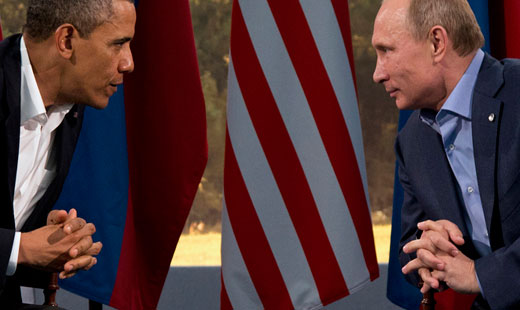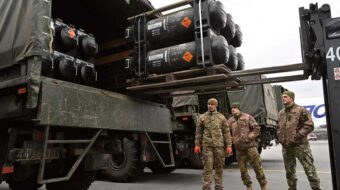
President Obama told a Tonight Show audience Aug. 6 that there are times the Russians “slip back into Cold War thinking and a Cold War mentality.”
The next day, the administration said the president would not go through with his planned face-to-face summit next month with Russian President Vladimir Putin. Besides Putin’s announcement that Russia is giving U.S. whistleblower Edward Snowden temporary asylum, the president’s press secretary also cited “lack of progress” on issues including arms control and missile defense, trade and commercial relations, human rights, and civil society.
Despite the summit’s cancellation, the president will travel to Russia for the G-20 summit Sept. 5 and 6, and Secretary of State John Kerry and Defense Secretary Chuck Hagel are set to meet face-to-face with their Russian counterparts in Washington Aug. 9.
Big differences do exist in the two countries’ positions on international issues.
But refusing to talk at the highest level will not help resolve these concerns. Instead, it seems to illustrate the Obama administration’s own indulgence in “Cold War thinking and a Cold War mentality.”
In fact, asylum for Snowden after his revelations about massive U.S. surveillance, with their profound implications for U.S. civil liberties and relations abroad, is an odd pretext over which to cancel the meeting.
A far more constructive path would be for the two presidents to hold their summit. One issue could be working together toward a peaceful resolution of the conflict in Syria.
Greater willingness by the U.S. administration to hold high-level one-on-one talks with leaders in Iran and North Korea, as leaders of those nations have urged, could open the doors to progress there as well. So would serious diplomatic efforts in many international contexts.
This week’s commemorations of the 68th anniversary of the U.S. nuclear attacks on Hiroshima and Nagasaki should remind us that it is more important than ever for the world’s two most nuclear-armed nations to continue the process they have begun, to make major reductions in their nuclear arsenals as a way-station on the road to the complete, universal nuclear disarmament called for in the Nuclear Non-Proliferation Treaty of 1968.
At a crucial time in the Cold War of the 1960s, President John F. Kennedy famously repeated Winston Churchill’s words: “It’s better to jaw, jaw, than to war, war.” That’s a comment well worth listening to today.
Photo: AP












Comments